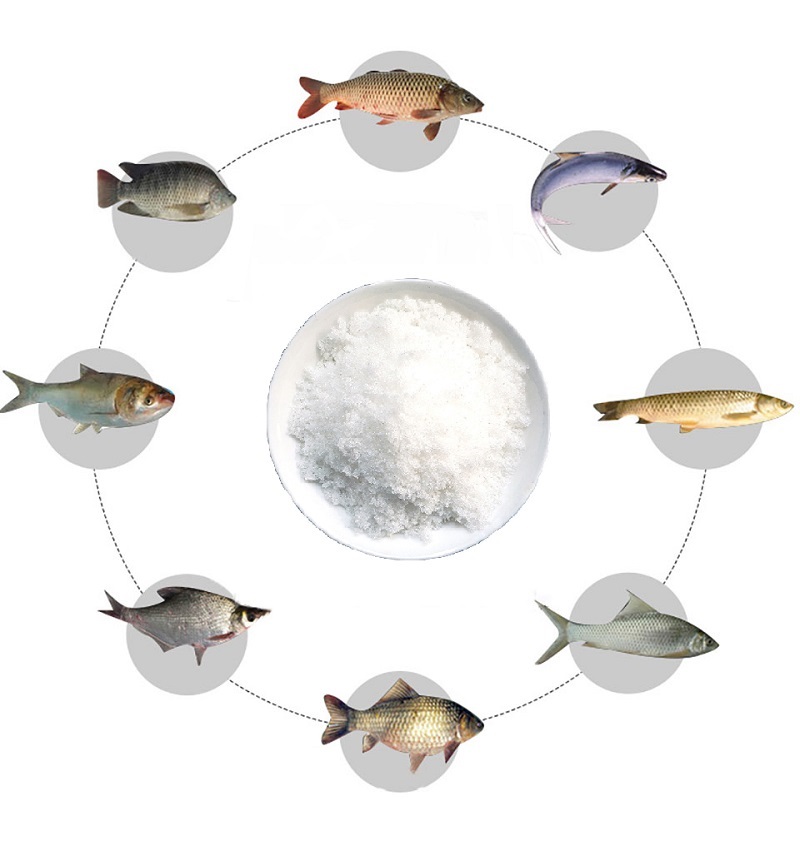Betaine is glycine methyl lactone extracted from sugar beet processing by-product. It is an alkaloid. It is named betaine because it was first isolated from sugar beet molasses. Betaine is an efficient methyl donor in animals. It participates in methyl metabolism in vivo. It can replace part of methionine and choline in feed. It can promote animal feeding and growth and improve feed utilization. So what is the main role of betaine in aquaculture?
1.
Betaine can alleviate stress. Various stress reactions seriously affect the feeding and growth of aquatic animals, reduce the survival rate and even cause death. The addition of betaine in feed can help to improve the decline of aquatic animals' food intake under disease or stress, maintain nutritional intake and reduce some disease conditions or stress reactions. Betaine helps to resist cold stress below 10 ℃, and is an ideal feed additive for some fish in winter. Adding betaine to feed can greatly reduce the mortality of fry.
2.
Betaine can be used as a food attractant. In addition to relying on vision, fish feeding is also related to smell and taste. Although the artificial food input in aquaculture has comprehensive nutrients, it is not enough to cause the appetite of aquatic animals. Betaine is an ideal food attractant because of its unique sweetness and sensitive freshness of fish and shrimp. Adding 0.5% ~ 1.5% betaine to fish feed has a strong stimulating effect on the smell and taste of all fish, shrimp and other crustaceans. It has the functions of strong feeding attraction, improving feed palatability, shortening feeding time, promoting digestion and absorption, accelerating the growth of fish and shrimp, and avoiding water pollution caused by feed waste. Betaine bait can increase appetite, enhance disease resistance and immunity. It can solve the problems of refusal of sick fish and shrimp to bait and compensate for the reduction of fish and shrimp food intake under stress.
Post time: Sep-13-2021






